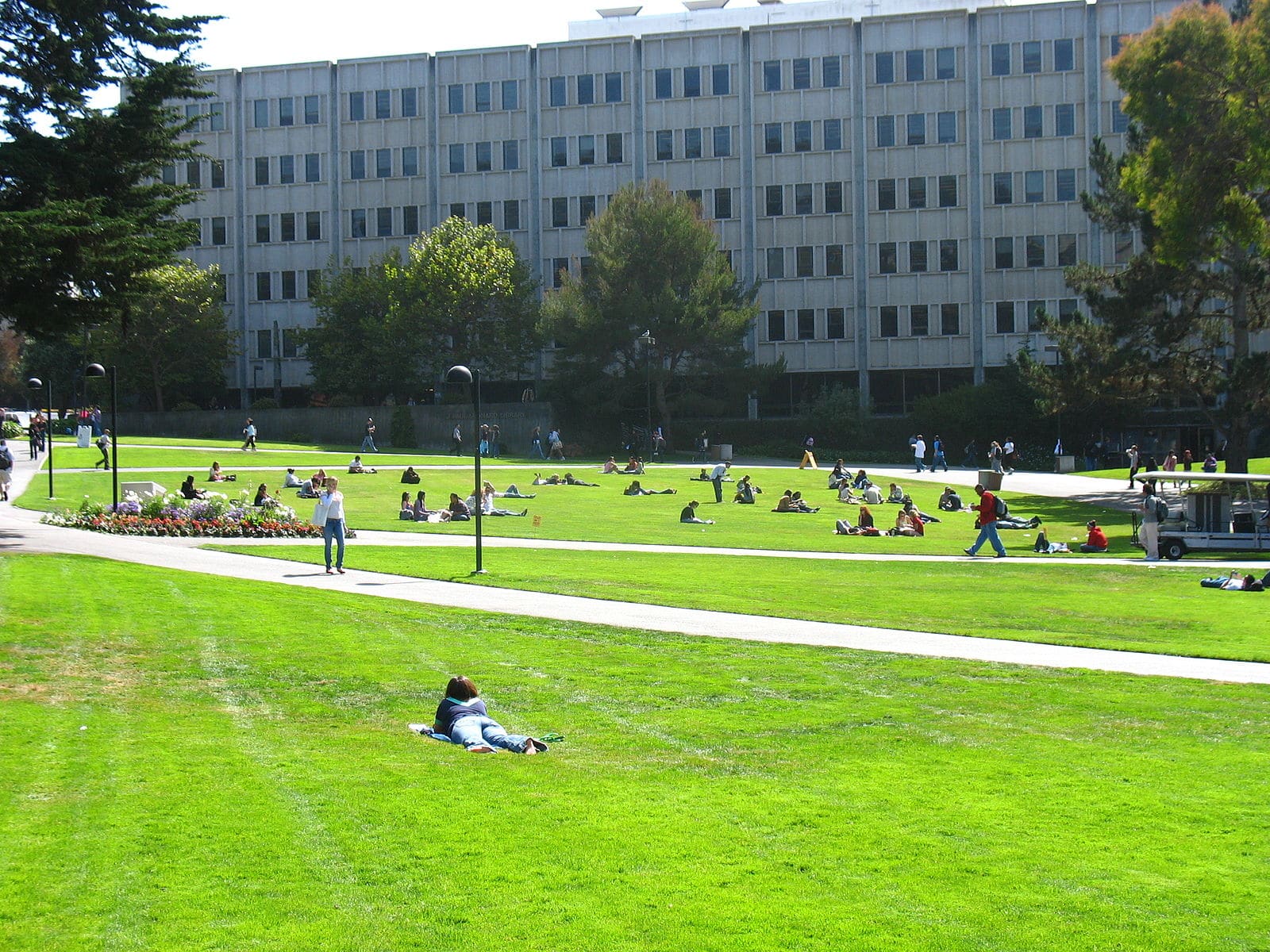 Photo from Wikimedia Commons.
Photo from Wikimedia Commons. San Francisco State University (SFSU) President Lynn Mahoney issued a statement on Sept. 5 addressing the upcoming Zoom webinar with Popular Front for the Liberation of Palestine (PFLP) member Leila Khaled.
The Sept. 23 webinar, which is being hosted by the Arab and Muslim Ethnicities Diaspora (AMED) at SFSU, will feature Khaled as well as Acting Director of the Institute for Women’s Studies at Birzeit University in the West Bank Rula Abu Dahou, South African politician Ronnie Kasrils, former Black Liberation Army member Sekou Odinga and Jewish Voice for Peace member Laura Whitehorn. SFSU AMED professor Rabab Abdulhadi, who said Zionists were white nationalists in a 2019 UCLA guest lecture, and SFSU Women’s Studies professor Tomomi Kinukawa will moderate the panel. Jewish groups have called for the university to condemn Khaled.
Mahoney said in her statement, “SF State and I strongly condemn anti-Semitism, Islamophobia, anti-Blackness, racism, and other hateful ideologies that marginalize people based on their identities, origins or beliefs. Let me say equally emphatically that we support the right of our faculty to academic freedom and to conducting their teaching and scholarship without censorship. And I say this while also condemning the glorification and use of terrorism and violence, particularly against unarmed civilians.”
She touted SFSU as “one of the most diverse campuses in the US” and reiterated the university’s commitment to an inclusive environment on campus.
“We condemn ideologies of hatred and violence,” Mahoney said. “We do this not by restricting protected speech, teaching or scholarship but by providing resources for those in need of support and, again, by facilitating educational opportunities that align with campus values and promote viewpoint diversity. We will exercise compassion and support those who are marginalized or fearful.
“Students who feel targeted, marginalized or discriminated against will find allies in all corners of our campus. The Division of Equity and Community Inclusion provides many resources for students and the community.”
StandWithUs CEO and co-founder Roz Rothstein noted in a tweet that Mahoney didn’t mention Khaled’s name or “her terrorist group: PFLP in her statement. Lynn—invite families of civilian victims of PFLP terrorism as other voices.”
SFSU President Lynn Mahoney issued a statement about the convicted terrorist coming to her campus, Leila Khaled, without naming her & her terrorist group: PFLP in her statement. Lynn-invite families of civilian victims of PFLP terrorism as other voices. https://t.co/0YnYV1O6nJ
— Roz Rothstein (@RozRothstein) September 9, 2020
Israellycool blogger David Lange shared a testimony from Rodney Khazzam, who says he was on the plane that Khaled hijacked in 1970.
“Leila Khaled attempted to kill me, an innocent, civilian child at the time. I am alive because of the heroic pilot who thwarted the hijacking,” Khazzam wrote in a letter to Mahoney. “Her partner in crime was killed on the plane by undercover marshals right in front of me. She was captured by the same [people]. When she realized she was being captured and her plan was being foiled, she detonated a grenade and indiscriminately attempted to set if off onboard. By sheer fortune, all her attempts failed. She was taken into custody and convicted in the United Kingdom, where we safely landed. She was ultimately released as a political swap bargain.”
In a petition calling on SFSU to cancel Khaled, Khazzam argued that while academic freedom is important, having Khaled speak would be no different than allowing the 9/11 hijackers to speak at a university event.
“There are 1000’s of very well versed speakers that could be invited to SFSU lecturing on the same cause,” he wrote in the petition. “She is being given this honor for one reason only, [s]he is an infamous female hijacker/terrorist. That is her claim to fame.”
Khaled, now 76, had told Vice News in 2016 that the PFLP ordered her not to kill anyone during the hijackings in 1969 and ’70 and defended them as “doing something for my people.”























 More news and opinions than at a Shabbat dinner, right in your inbox.
More news and opinions than at a Shabbat dinner, right in your inbox.